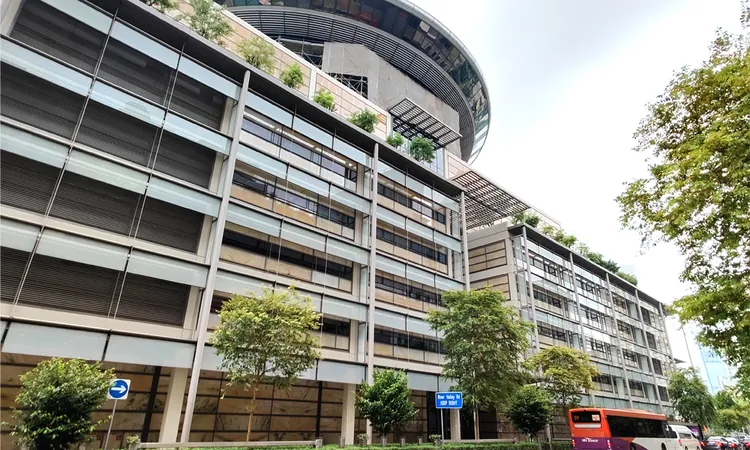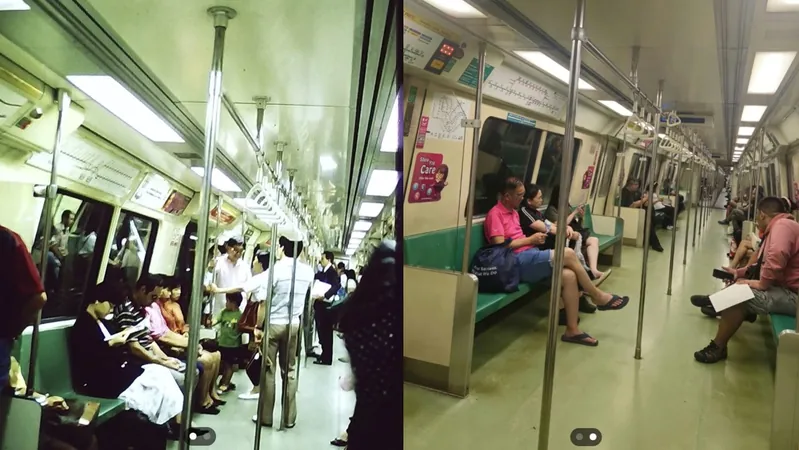
Breaking News: Foreign Lawyers Barred from Self-Representation in Singapore Appeals – What This Means for International Legal Practitioners!
2024-09-26
Landmark Decision by the Singapore Court of Appeal
In a landmark decision delivered on September 25, 2024, the Singapore Court of Appeal has ruled that foreign legal counsel seeking ad hoc admission cannot argue their own applications before the court. This surprising verdict has sent shockwaves through the international legal community, particularly foreign lawyers who were hoping for more leeway to represent their clients in Singaporean legal matters.
The Case Details
The appeals were presided over by Chief Justice Sundaresh Menon, Justice of Appeal Belinda Ang Saw Ean, and Senior Judge Judith Prakash. The case involved two distinguished King’s Counsel—Theodoros Kassimatis KC and Edward Fitzgerald KC—who aimed to gain temporary admission to advocate for clients embroiled in serious legal issues, specifically four individuals facing death sentences under Singapore’s Misuse of Drugs Act (MDA).
Core Issue and Ruling
Determined to challenge their clients' convictions in civil appeals regarding the MDA, Kassimatis and Fitzgerald faced opposition from both the Attorney-General and the Law Society of Singapore. Their earlier pleas were dismissed by a High Court judge, leading to a critical question: Could foreign counsel act as their own advocates in their ad hoc admission applications?
The Court of Appeal clarified that these foreign counsel were not "self-represented" in the sense that they were advocating for their own interests; rather, they sought the privilege to represent their clients. The judges emphasized that the core issue of ad hoc admission revolves around the rights of the foreign lawyer's clients, not the applicants themselves. This ruling effectively reinforces the restrictions put forth under the Legal Profession Act (LPA), which limits unauthorized individuals from practicing law in Singapore.
Understanding the Ruling
In essence, the appellants’ expectation to argue their own admission was misunderstandable, yet misguided, as the Court firmly stated that such privileges are strictly reserved for local advocates and solicitors. To put it in layman's terms: foreign lawyers looking to practice temporarily in Singapore cannot take the reins on their own applications; they need local representation.
Opportunities for Affected Claimants
Nevertheless, while this ruling presents significant hurdles for foreign counsel, hope is not lost for their clients. On October 9, 2024, the affected claimants will have the opportunity to present their case—either through local counsel or by addressing the court themselves if they forgo legal representation.
Wider Legal Implications
In related news from South-East Asia, the legal landscape is buzzing not just over foreign counsel rules. A jarring incident in Malaysia saw a local teacher sentenced to 10 years in prison for child abuse at a religious school, while four men in Singapore have been charged for causing a public nuisance and using abusive language against law enforcement officers at a crime scene. This highlights an ongoing crackdown on misconduct and reinforces the need for vigilance within communities.
As we navigate these pressing legal issues, the implications of the Court of Appeal’s decision on foreign counsel may ripple far beyond Singapore's shores, altering how international lawyers approach their practice within the region. Legal professionals worldwide will be watching closely as the effects of this judgment unfold in the coming months.




 Brasil (PT)
Brasil (PT)
 Canada (EN)
Canada (EN)
 Chile (ES)
Chile (ES)
 España (ES)
España (ES)
 France (FR)
France (FR)
 Hong Kong (EN)
Hong Kong (EN)
 Italia (IT)
Italia (IT)
 日本 (JA)
日本 (JA)
 Magyarország (HU)
Magyarország (HU)
 Norge (NO)
Norge (NO)
 Polska (PL)
Polska (PL)
 Schweiz (DE)
Schweiz (DE)
 Singapore (EN)
Singapore (EN)
 Sverige (SV)
Sverige (SV)
 Suomi (FI)
Suomi (FI)
 Türkiye (TR)
Türkiye (TR)